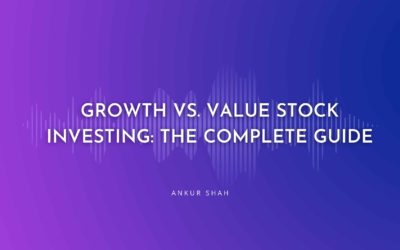Career in Stock Market
The stock market offers a wide range of career opportunities for skilled professionals, beyond just being a stock broker or trader.
The industry requires expertise across functions like research, analysis, trading, operations, compliance and more.
With the right qualifications and experience, professionals can build rewarding careers in domains like investment banking, portfolio management, risk management and quantitative finance.
The required skill sets range from numerical proficiency and analytical thinking to communication skills and attention to detail.
Some of the major career options in the stock market are:
– Analyst (technical, fundamental)
– Portfolio manager
– Proprietary trader
– Quantitative analyst
– Risk manager
– Compliance officer
– Relationship manager
– Investment banker
Each of these roles requires specialised qualifications, knowledge and relevant work experience. The career growth prospects and salary potential is linked to performance and expertise.
This article will provide an overview of how to build a successful career in the stock market across different domains.
It covers the key job roles, required qualifications, important skills, career progression pathway and salary potential at different levels.
What are the main job roles in the Stock Market?
– Broker:
Acts as an agent to buy and sell securities on behalf of clients. Requires registration with regulatory bodies.
– Analyst:
Performs research and analysis on companies, sectors and markets to forecast performance and trends. Can be fundamental analysts or technical analysts.
– Portfolio Manager:
Manages investment portfolios for clients based on their financial goals and risk appetite. Involves investment strategy, asset allocation and portfolio optimization.
– Trader:
Buys and sells securities to generate profits from price movements. Can be proprietary traders working for an investment firm or independent traders.
Consistent Compounding – Screening for warren buffet stocks
– Quantitative Analyst:
Develops mathematical and statistical models for analyzing data and identifying profitable trading opportunities. Uses programming skills.
– Risk Manager:
Measures and monitors risk exposures across portfolios. Recommends strategies to mitigate risks.
– Compliance Officer:
Ensures company policies and procedures adhere to regulatory requirements. Keep up-to-date with changing regulations.
– Sales Trader:
Supports sales teams and institutional clients in executing trades and maintaining relationships. Acts as a link between sales and trading desks.
– Investment Banker:
Provides advisory services to companies on activities like mergers, IPOs, FPOs and private equity financing. Manages deal origination and execution.
Important Education and Qualifications
MBA in Finance:
An MBA with a specialization in Finance provides strong fundamental knowledge of financial markets, investments, accounting, and economics.
It equips students with analytical and problem solving skills. Top B-school MBAs open opportunities across trading, research, and investment banking roles.
Check out – How does stock market work
Chartered Financial Analyst (CFA):
The CFA program offered by CFA Institute covers portfolio management, financial analysis, stocks, bonds, derivatives, and alternative investments.
It is considered the gold standard for investment analysis expertise. The CFA charter signals professional competence and integrity.
Financial Risk Manager (FRM):
The FRM certification focuses on risk management principles, quantitative analysis, valuation models, and risk management tools. It equips professionals for risk roles like risk analyst, model validator, credit risk manager etc. FRM holders possess specialized risk management knowledge.
NSE Certification in Financial Markets:
NSE certifications like NCFM and NISM provide regulatory knowledge of the Indian securities markets.
They cover topics like equities, derivatives, compliance, operations, fundamental analysis, technical analysis etc. NCFM/NISM certifications are mandatory for many roles.
Masters in Finance:
A specialized Masters like MMF or MFM helps gain advanced knowledge of finance principles like corporate finance, derivatives, financial econometrics, financial modelling etc.
The quantitative focus helps for roles like financial analyst, model developer, risk analyst.
Key Skills Needed
Numerical Proficiency:
Working effectively with numbers is essential across portfolio management, trading, research and risk management roles. Professionals need strong math, statistics, and quantitative skills.
Interpersonal Skills:
Client interactions, team management, and stakeholder communication require good interpersonal abilities. Building relationships and persuading clients are important.
Know more – How to use Stock Screener
Communication Skills:
Explaining complex financial information, presenting data insights, and writing reports require clarity of communication.
Attention to Detail:
Precise work and avoiding errors are critical when dealing with financial data, modelling, analysis, and trading decisions. Carefulness and rigor are valued.
Analytical Thinking:
The ability to synthesize data, identify patterns, develop insights, and make sound decisions based on analysis is very important.
Risk Management:
Understanding different types of financial risk and incorporating prudent risk management practices are a core part of many roles.
In addition, skills like time management, multitasking, problem solving and keeping up-to-date with markets add to success in stock market careers. The most in-demand professionals combine multiple skill sets.
How to Build a Career
Getting an MBA or specialized certification:
Gaining relevant education and qualifications is the essential first step. An MBA, CFA, FRM, NISM certification or Master’s in Finance provides fundamental knowledge and signals competence to recruiters.
Don’t miss out – Stock Valuation Methods
Joining as an analyst at a financial services firm:
Starting as a research analyst or investment banking analyst at a bank, brokerage or investment firm offers learning on the job. This provides first-hand insights into different functions.
Progressing from analyst to fund manager:
Analysts can advance their career by taking on portfolio management responsibilities once they gain sufficient experience. This allows managing investments directly.
Switching from research to trading desk:
Professionals can move from equity research or analysis roles to proprietary trading or client portfolio management to diversify their experience.
Specializing in a domain like risk management:
Developing deep expertise in an area like risk management, quantitative finance or compliance opens up roles like risk analyst, model validator, compliance officer etc.
Gaining relevant work experience and gradually taking on more responsibility provides both skills and industry connections.
Professionals can choose to specialize or diversify their experience based on interest.
Career Growth and Salary Prospects
Salaries at Different Levels:
– Entry-level analysts can expect starting salaries of ₹5-8 lakh per annum at banks and financial services firms. This rises to ₹10-15 lakh for analysts with 2-3 years of experience.
– Portfolio managers with 5-8 years of experience can earn ₹20-30 lakh per annum, plus a share of profits in portfolio performance incentives.
– Senior portfolio managers and fund managers at large firms can earn annual remuneration of ₹1 crore and above, based on assets under management and fund performance.
– Traders at investment banks and hedge funds start at ₹10-12 lakh but experienced proprietary traders can make well over ₹1 crore annually including bonuses and profit sharing.
– Investment bankers at the associate level earn ₹15-25 lakh per annum, rising up to ₹1-1.5 crore for senior investment bankers and heads of M&A.
Income Potential for Successful Traders and Portfolio Managers:
– Star traders at leading hedge funds can earn annual bonuses up to $50 million and profit sharing up to 20% of gains, allowing income potential of billions.
– Portfolio managers with a strong track record of generating alpha can charge hefty fees of 1-2% of AUM and 20-30% of profits. This can translate into crores for portfolio managers with large AUMs.
– Many successful traders and portfolio managers eventually start their own funds, allowing them to earn a sizable chunk of profits based on performance.
Salary Growth with Experience and Skills:
– Starting salaries are generally on the lower side but rise exponentially as professionals gain specialised domain knowledge and proven expertise.
– Developing expertise in high demand areas like quantitative analysis, financial modelling, risk management accelerates salary growth.
– Transitioning from pure trading or research roles to client portfolio management and business development expands earning potential.
– Strong performance, rainmaking abilities and people management skills drive the highest compensation packages at senior levels.
The career growth and salary progression in the stock market can be amongst the steepest for talented professionals who continuously upgrade their skills. Profits and performance-linked variable pay account for a large portion of earnings at senior levels.
Challenges of a Career in the Stock Market
Long working hours – Professionals often have to put in 60-80 hour work weeks during busy periods. Trading involves early starts and portfolio managers have to track global markets. Pitches and deals lead to late nights for investment bankers.
Stressful work environment – Volatile markets, high pressure deals, demanding clients, job insecurity during downturns, and cut-throat competition create a stressful environment with high burnout risk.
Constant learning – The industry evolves rapidly. Extensive reading, keeping updated with regulations, mastering new financial models, and acquiring adjacent domain knowledge is essential for career progression.
Risk of losses – Traders and portfolio managers have their performance closely tied to market movements. Inability to cope with losses or downward phases can derail careers.
Other challenges include navigating office politics, lack of work-life balance, combating gender bias, and managing insecure job prospects during market downturns. Mental resilience, passion, and adaptability help overcome these challenges.
Check out – Electric Vehicle Shares in India
Useful Resources Courses For Stock Market Careers
Udemy – Popular courses for stock trading, financial modeling, algorithmic trading, CFA exam prep etc.
Coursera – Offers courses like Investment Management, Financial Markets, and Asset Pricing from top universities.
EdX – Provides access to finance and investment courses from MIT, Columbia, NYIF etc.
Khan Academy – Free courses on stocks, bonds, investment vehicles, portfolio management and valuation.
Varsity by Zerodha – Platform offering free courses on stock markets, technical analysis, trading psychology etc.
Investopedia – Website with extensive resources for investing and trading education.
Books – Recommended reading for stock market fundamentals, financial analysis, trading strategies.
Finance blogs/forums – For staying updated with markets and peer learning opportunities.
Social media handles – Traders and experts to follow on Twitter, YouTube, LinkedIn etc.
Consistent Compounding – The Day that saved my career
Conclusion
The stock market offers a wide range of rewarding career opportunities for skilled professionals.
One can build highly lucrative careers in domains ranging from equity research and trading to investment banking, portfolio management, and risk management.
The key roles like analyst, trader, portfolio manager, banker and risk manager each require a specific skill set and relevant qualifications. Education like an MBA, CFA, FRM and NISM certifications provide a strong base.
Professionals need a combination of numerical proficiency, analytical abilities, communication skills and attention to detail to excel.
Gaining experience through roles like analyst, working towards portfolio management and developing deep expertise provides career progression.
Salaries rise exponentially from entry-level packages of 5-8 lakhs to crores for experienced portfolio managers, traders and bankers.
However, long hours, stressful environments, continuous learning needs and performance pressures are part of work life.
In conclusion, the stock market offers bright prospects for smart, dedicated professionals who develop expertise in high-demand domains within the industry.
With the right skill sets and experience, it is possible to achieve career growth, immense earning potential and professional success in the stock market.




